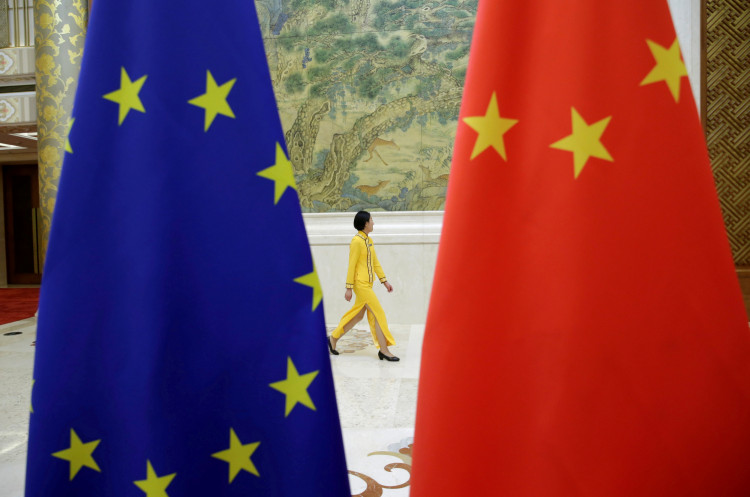European Union trade officials said Tuesday they are seeking to coordinate a unified response with the United States and other G7 partners to China's latest expansion of export restrictions on rare earth minerals-an escalation that has raised alarm across Europe's industrial base and intensified global economic tensions.
The measures, announced by Beijing last week, dramatically widened export controls to include additional rare earth elements, refining technology, and even semiconductor-related equipment. European Trade Commissioner Maros Sefcovic called the curbs "unjustified" and said they had triggered "a lot of concerned calls from European industry, especially car companies."
Sefcovic told reporters before a ministerial meeting in Horsens, Denmark, that the EU was treating China's move as "a critical concern." He said he had discussed the issue with U.S. Commerce Secretary Howard Lutnick and proposed an urgent G7 video call to coordinate a joint response. "We brainstormed yesterday that it would be advisable after this first discussion to have a G7 video call pretty soon," he said.
Danish Foreign Minister Lars Lokke Rasmussen, who hosted the meeting, said the EU must show strength but avoid isolation. "We should have a tough response - we need European unity. We are the biggest trading bloc in the world, we have a lot of muscles. We need to flex the muscles, but at the same time we need to be realistic," Rasmussen said. "This is actually an area where we have common interests with our friends in the U.S. If we stick together, we could much better pressure China to act in a fair way."
The rare earth restrictions come as President Donald Trump threatens to impose 100% tariffs on Chinese exports, prompting a sell-off on Wall Street and rattling European markets already strained by supply disruptions. Sefcovic said he plans to hold a video conference with China's Commerce Minister Wang Wentao next week to press for explanations, noting that Brussels had received incomplete responses to previous export applications. Only half of its applications had been "properly treated," he said. "Of course, [that] makes it very difficult for planning, for business development in our companies."
Beijing's latest curbs extend licensing requirements to products containing even trace amounts of rare earths and to technologies used in processing them, such as those involved in batteries, semiconductors, and artificial diamond manufacturing. "To have this dramatic expansion of scope and adding additional products, batteries, superhard surfaces, meaning artificial diamonds, is aggravating the situation," Sefcovic said.
The European Commission is now weighing long-term diversification strategies, including joint mineral extraction and refining projects with allied nations. "Of course these projects take time, but with this signal we got from China it's clear we have to focus on accelerating these processes as much as possible," Sefcovic told reporters.
Spanish Commerce Minister Maria Amparo López Senovilla said the EU's response could include "any kind of measures, like restriction of exports," but added that Europe must balance security with economic opportunity. "China could be a strategic ally, but at the same time, we have to preserve economic security. We have to reduce our dependencies, and we have to preserve also our strategic autonomy," she said.
The meeting in Denmark also focused on developing an "economic security doctrine" to strengthen Europe's resilience against external shocks. Rasmussen emphasized that dialogue, not tariffs, should define the EU's next steps. "We have weapons on the table, but we should do our utmost to avoid that. So it's about frank and open discussions with the Chinese," he said.





